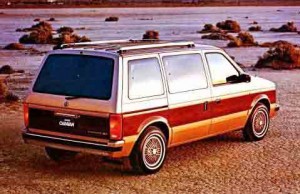
The House cash-for-clunkers bill would provide vouchers worth up to $4,500 to those trading in vehicles on more fuel-efficient new models.
If the U.S. House of Representatives has its way, American car buyers could soon receive vouchers of up to $4,500 to trade in their aging and inefficient vehicles on more fuel-stingy cars and trucks.
The House, encouraged by White House support, approved a so-called “cash-for-clunkers” measure by 298-119, despite some Republican opposition. The proposal, which sponsors believe could generate as many as 1 million additional sales for an industry suffering from a 47% decline in volume, still must be approved by the Senate, where it is hung up, and then go to the White House, where President Barack Obama is considered all but certain to sign it into law.
“Stimulating sales is the only way to get the auto industry back on its feet,” said Republican Rep. Donald Manzullo, one of those who voted his approval. But Republican Jeff Flake countered that the measure is “defying the laws of economics and saying we can manufacture enough of a demand to keep the auto industry afloat.”
Proponents can point to Europe, where several recent cash-for-clunkers deals have shown great promise in promoting car sales. In Great Britain, a similar measure generated 35,000 sales since it was launched, barely a month ago, according to data from the British government.
 The House version of a scrappage bill would provide a $3,500 voucher for the purchase of a new vehicles getting at least 22 miles per gallon if the buyer traded in a vehicle getting 18 mpg or less. The voucher would increase to $4,500 if the new vehicle gets at least 10 mpg more than a passenger car being traded in, or at least 5 mpg better than a traded-in truck.
The House version of a scrappage bill would provide a $3,500 voucher for the purchase of a new vehicles getting at least 22 miles per gallon if the buyer traded in a vehicle getting 18 mpg or less. The voucher would increase to $4,500 if the new vehicle gets at least 10 mpg more than a passenger car being traded in, or at least 5 mpg better than a traded-in truck.
A similar measure is being sponsored in the Senate by Michigan Senator Debbie Stabenow, whose state has been desperately hurt by the current automotive downturn. Without a clunkers bill, most analysts expect 2009 car sales to reach no more than 10 million, down from several years of more than 17 million in sales earlier this decade.
A yearlong cash-for-clunkers program is expected to cost about $4 billion, but at the current, $25,000 cost for the average new vehicle, an additional 1 million sales would be worth about $25 billion to the auto industry and the economy.
“We anticipate that this program could spur roughly 500k incremental sales,” or a bit less than lawmakers are projecting, cautioned Rod Lache, auto analyst with Deutsche Bank. Even so, he noted in an analysis, “Depending on the rate of usage… the program has the potential to meaningfully impact the current anemic (car market) for several months.”
The debate over a clunkers bill has evolved significantly since the concept was first proposed, at the beginning of the year. Initially, Detroit’s symphathizers had hoped to write in language that would encourage sales of Big Three products or at least vehicles made in the U.S. Environmentalists were seeking to focus on even more fuel-efficient products. In the end, the likely law will simply be aimed at yielding a bit better mileage while delivering an overall boost to the auto industry.

And in the meantime as Bob Buyer waits to see if this legislation passes, no one buys anything in the fear of missing the handout!
I would be highly upset if I traded in my Mountaineer today and only one week later could have quailified for a $4500 giveback!
The government really needs to get out of the automotive stimulation/regulation business.
Free enterprise was working just fine until the unions and government began running the show.
It seems that 4 billion is a lot to spend on only 1 million sales. The dealers will have a great opportunity to steal a lot of good trades. I love my old Oldsmobile 1993 88 Royale. They don’t build em like that anymore. A real American cruiser, it marks the difference between an import that feels every bump and has a seat about 2 feet off the ground and an American ride that is easy to get in and out of, is quiet and takes command of the highway without sinking the tires into the wheel wells when you have 4 passengers. Oh well !!